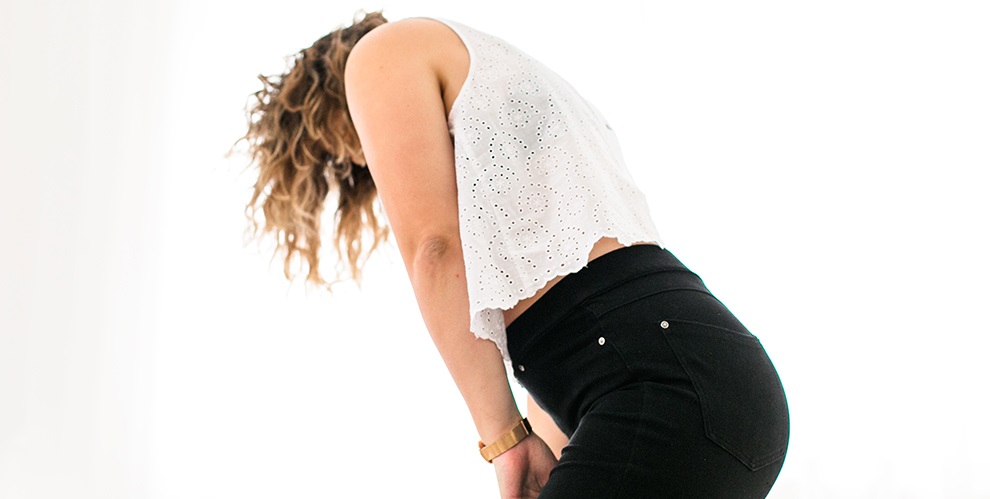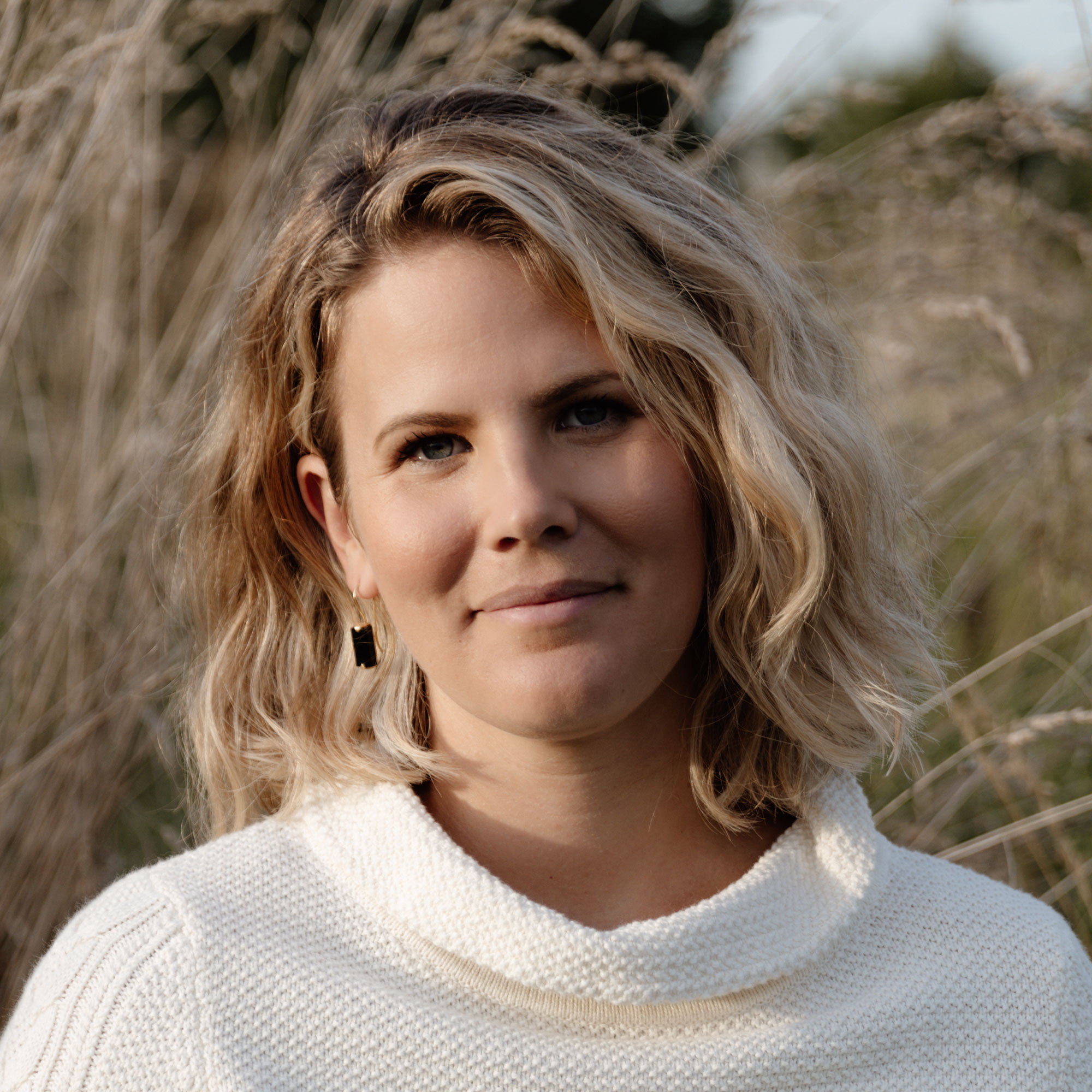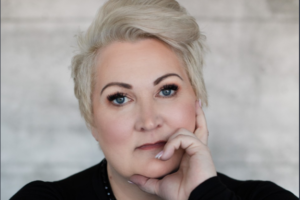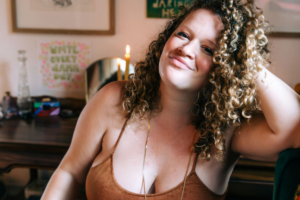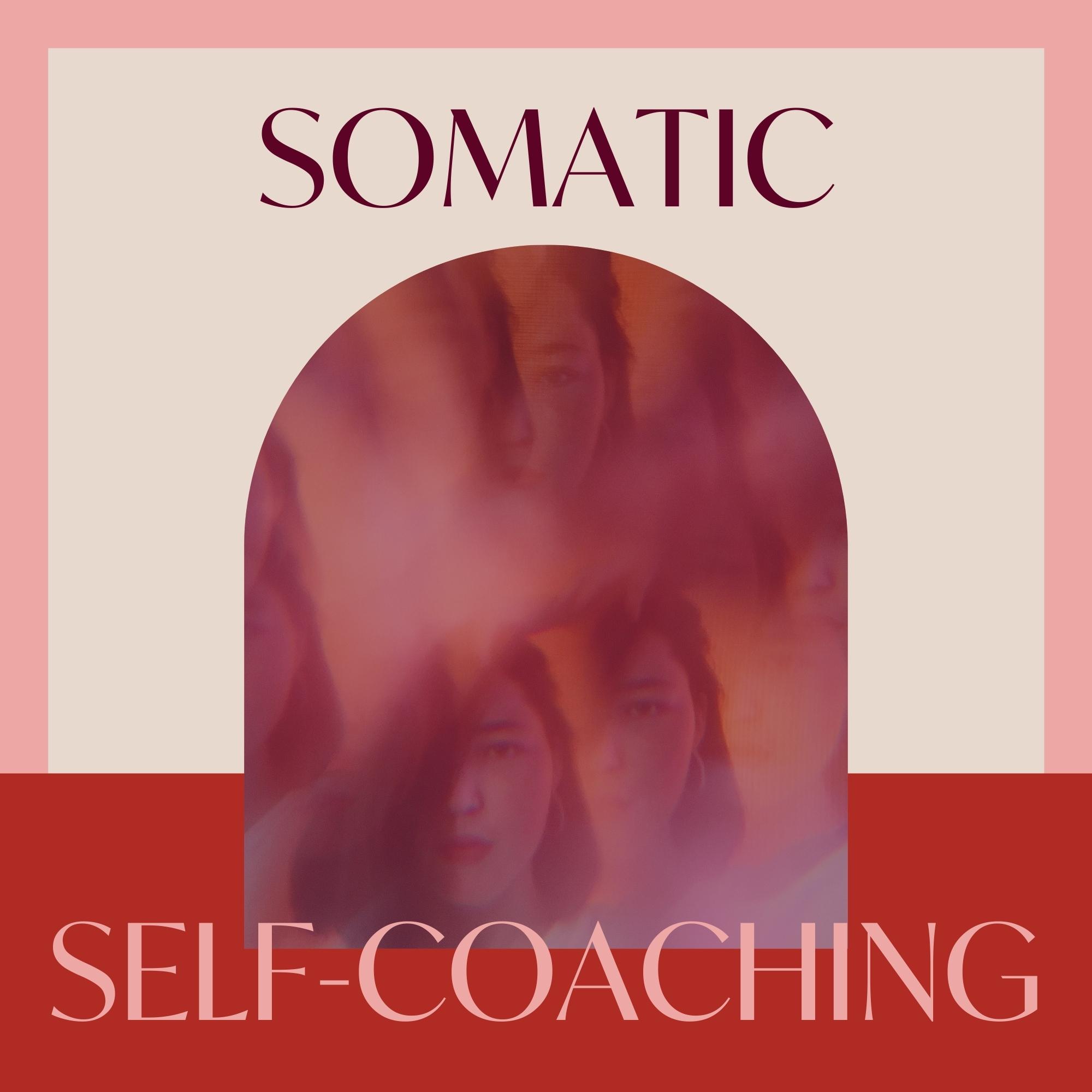Listen on iTunes | Listen on Spotify | Subscribe to the Podcast
Understanding the subtle (yet often sophisticated) ways we avoid being in our bodies is essential for embodied women.
Our culture(s) want us to be dis-embodied and will coerce, corrupt & challenge our heartfelt desire to connect to more aliveness & pleasure at every opportunity. (I make it sound like warfare! Truly it’s not that dramatic, and yet it is also the future of our species & planet so it somewhat important…)
As a coach, I spend a decent amount of time noticing how my clients avoid being in their bodies. I myself also experience this exact same phenomenon. So I made this new (fabulous) podcast on the topic.
In this podcast we dive into:
- Why it’s desirable to be alive below your neck
- Valid reasons for avoiding being in our body
- Analysis of 3 key ways we avoid being in the body
- The difference between formal & informal embodiment practices
- Why making meaning of a situation isn’t the same as resolving the tension of that sensation
- Ways in which I feel the wellness/spiritual space is evolving
Resources mentioned in this podcast:
What are you too busy to feel right now?
What are you making meaning out of, but it’s still not quite sitting sincerely?
Where are you focusing on the positive, and diminishing the power of your vulnerability?
Transcript
Hey, hey, and welcome to today’s podcast. I’m Jenna Ward, your hostess for this conversation around three ways we avoid being in our body.
This awareness of some of the three most frequent tendencies that we use to disembody is really useful for me. Because when things just are not going well in life, if things feel heavy or too much or I don’t necessarily feel a connection with myself or how I desire to feel, reflecting on the awareness of these three factors helps me to really easily navigate and tune into what might need to shift in order for me to have that sense of connection and that sense of greater depth and richness. Which, for me, comes with being connected into the full range of life and sensations that happens when I’m more embodied. So let’s dive in.
Welcome to the School of Embodied Arts Podcast. I am your hostess, Jenna Ward, feminine embodiment coach here for our weekly explorations of living, leading, and coaching as emotionally empowered, sensually alive and magnetic women.
As a coach, I spend a pretty decent amount of time noticing how my clients avoid being in their bodies, and I myself experience this exact same phenomenon. I really like to see embodiment as a skill that we need to consistently practice.
So it’s really similar to … I mean, I don’t go to the gym, but if you go to the gym, maybe your training to lift a certain weight or a certain heaviness. And if you take 12 months off going to the gym and then all of a sudden you show up, a lot of your strength, your resilience, your muscle memory might still be there, but your muscles have weakened.
And a little bit the same can be true of embodiment. Embodiment is our most natural state. It’s how we are born, but we are all so deeply culturally conditioned to disembody that, in my experience, embodiment is really a skill that I do need to consistently work towards or work at. And I don’t want to make it sound like it’s hard work, because it’s not. It’s actually really easy work in the sense that it feels ultimately so good to be connected, to be back in the flow of our most natural state. For me, it’s well worth it. But this experience of not being in our body is one that I see within myself and within my client’s bodies.
So what are these three ways we avoid being in our body? Before I can answer that question, it’s important to speak to the fact that there are valid reasons for avoiding being in your body. So why is it desirable to be in your body?
I want and yearn to move towards greater and greater states of embodiment. Because when I attuned to the aliveness in my body, and that is the liveliness that exists below the level of my neck, that’s an aliveness that absolutely, it just makes me feel like everything is right in the world. I get a somatic sense all is well and all will be right in the world.
Our culture wants us to think that our body is a means to produce and that our body is just a taxi to take our brain around in, and I believe our body is so much more than that. Our body is the place where all of the sensations of life are alive and when we reconnect with those sensations, we’re reconnecting with our power. Audre Lorde puts it as reconnecting with the erotic, and I don’t mean that in a sexual way. I mean the erotic as Eros, as aliveness and intensity and love and sensuality. And that is, that’s pumping around in all of our bodies every day. Why would we not want to be more connected with that?
I believe it’s desirable to be embodied because when I’m in my body, my decisions flow. I can process intensity in the moment and I don’t have to be in analysis or overthinking in days to come. It’s desirable because it supports me to actualize who I really am in the world, supports me to be in my heart, connecting to others hearts. This is why I want to be in my body, and yet there are sometimes valid reasons why we may wish to avoid being in our body.
If you’re not connected to your heart, your pelvic bowl, if you’re not connected to the sensations and the emotions and the infinite universe of possibilities that’s alive inside you, it may not be because there’s something wrong with you. There may be a really valid reason for not being in your body. More body sensations are not always better, and it doesn’t necessarily make you a better or more enlightened person to be more embodied. There are a lot of really valid reasons for not feeling safe should be in your body.
This might include a current or a past trauma. If something has overwhelmed the system and just felt like too much or too soon or too intense, then there can be really well-systematized ways that our body actually supports us to remain relatively stable and whole by separating from our body and from those intense sensations. And that can be an acute response, which is really healthy. It can also be a chronic or a longer term response, which may or may not be healthy. Another valid reason that it may not be safe to be in your body or it may not feel safe to be in your body is that there is an overwhelming sense of too much or too intense.
So when I was, a few years ago, I was sharing a embodied movement practice with one of our students and this student was having a really hard time getting it. Because I was asking or inviting her to feel into uncomfortable sensations, like a grief or a pain or an ache or a longing. And the student said to me, this participant rather said to me, “Jenna, I’m just a bit confused. Shouldn’t we be focusing on what feels good? Is the point of this practice not to feel good.”
And I said, “Well, actually, embodiment practices are not designed to feel good.” They certainly can do that and some variants of embodiment practice are about focusing on the pleasure and expanding our capacity and our stamina to be in what feels really alive. But embodiment at its heart is really about intimacy with the truth of what he is. And if there is something that’s painful or uncomfortable, longing or aching, something we might consciously describe as undesirable, but is yet an important part of the spectrum of aliveness that exists within us, then embodiment is about being intimate with that.
And yet there can be experiences within our body that feel too intense and it may not be conducive to operating in the world to dive into that intensity at a particular time, at a particular place or without a particular level of support that is around you. And this can be a really valid reason for avoiding being in your body.
Sadly, it’s also not helpful to be in your body if this is leading to an experience of volatility or harm towards yourself or another. In my experience, embodiment practices, when we enter into them embody honoring ways, never create volatility or harm. But what is required is for us to just listen to our body and to consider, does it feel safe for me? Does it feel stable for me to dive into the experience of this today?
So, with those valid reasons that we might avoid being in our body … And this is not, we might not avoid being in our body for our whole life. It might be just in this moment or just in this interaction or just in today’s practice or just for this week. We might actively decide and choose actually no, that’s too intense and it doesn’t feel safe with stable.
I trust that my body is only going to give me as much as I can handle, and I also have active choice I get around how loud I turn the volume up in the sensations of my body. And that’s a very important distinction to make because that’s still a conscious choice. That’s not unconsciously habitually being disembodied. That’s a conscious choice to say, “Actually, this is too strong for me today.”
Avoidance strategy number one, we have in our time and we are too busy. This isn’t going to be news to you, but let’s break this down. I don’t know about you, but my general week looks pretty crazy and it looks pretty crazy because our culture is hyper-productive, hyper-connected, hyper-doing.
Just think about how frequently you might wake up and reach for your phone and check one, two, three different apps, just data, data, data, receiving all this data. Before then thinking, what actually needs to be done this day? Oh my gosh. And as women in particular, we’re told that we can really have it all, and many of us do have a lot more opportunities than one, two, three generations before us. But I feel like nobody took anything off our plate, only put more things on it.
My calendar, my work, my life, it constantly reminds me and it constantly encourages me to feel like I’m too busy to be embodied. I’m too busy to have time for a formal embodiment practice. I’m too busy to be hypersensitive. I’m too busy to be with the blossoming of my body. In a moment, I’ll clarify what I mean by a formal practice. But I think you’re getting my drift, I’m too busy too. And this is true, I acknowledge that this is very true. And when I do this, I am complicit in perpetuating the culture of busyness through my body.
This really reminds me of a Morpheus moment from The Matrix where it’s like, “Are you going to swallow the red pill or are you going to swallow the blue pill?” If you comply with this system of busyness, if you are complicit with it, you contribute to the collective disembodiment. And I don’t mean to shame or blame anyone. Because I appreciate we need resources and we have people to care for and you got to earn a living and there’s a lot of busyness that has been made mandatory in order to operate in this world, and it’s been designed that way on purpose.
One of my very clever economic friends was speaking to me a little while ago about a universal basic income and if we pooled the wealth of the top even 1% of millionaires, billionaires on the planet, every human being would be able to have a living wage. A universal basic income where their needs would be met.
Imagine what we could do with our time if everyone’s basic needs were met without stress? But that’s not the world we live in and there may be really valid reasons why you are so busy in order to create safety, food, support for yourself and your family. And at the same time, your busyness can be complicit and is complicit with this collective disembodiment, and we have to be able to hold the complexity of birth of that. Because if we truly want to cultivate more connection with our body, I believe that we need to actually do two things as individuals.
The first is we need to actually … This has been my experience. I’m not going to dictate that this is what you need to do in your body. I’m just sharing what’s worked for me and what I’ve seen work a lot for our past clients and participants. I need a formal embodiment practice. I need a set number of minutes per week where I actually do, in my case, it’s a moving embodiment practice. I call it Primal Feminine Flow. The details are about that over on my website, and I’ll put the link in the show notes here.
For me, a formal embodiment practice is so necessary for me just to be connected to me. Just to decompress from the week, just to get reconnected with what I want and who I am between all the busyness. And at the moment, that looks like 30 to 40 minutes three times per week. And a big part of me is like, “I don’t have the time to do that. I’ve got birthday cakes to bake. I got to reply to a whole stack of emails. The lounge room is a total mess right now, and I haven’t washed my hair in five days if we’re getting really real.”
But at the same time, well, if I am complicit with all of the busyness, then I think that’s the red pill. Maybe it’s the blue one, but I think that’s the red pill in The Matrix. And I don’t want to be complicit with it. So it’s inconvenient for me to find time to have my formal 40 minutes of movement-based embodiment practice. But I do it every Monday, Friday and Wednesday morning, I do it.
Being in our body in a formal practice then helps us choose to be in our body in informal moments out in the world. So when I’m in the grocery line and my toddler is screaming and drawing all this uncomfortable attention and having a meltdown because I won’t give her another cookie and I’m feeling the anger bubble up and I just want her to be quiet, but I don’t want to shame her. Oh, all the complexity in that intense moment.
My formal embodiment practice, which has my nervous system decompress, has me reconnect to the adoration I have from my child, has me connect with who I want to be as a person. What I am as a person, the beauty that is life. That creates for me a resource that in those intense informal moments out in my day, I can draw on and I respond better. And I feel like when we have no time, when we are too busy and the formal opportunities for a practice begin to fall away or fall off the bottom of our to-do list, then in those informal moments, we are less resourced to respond. And that creates more disembodiment for us.
There’s a lot of reasons that we may avoid being in our body, but having no time, being too busy to have a formal practice is right up there with the number one reason. And here’s the hot tip, if you don’t create the time, no one’s going to create it for you. Maybe that’s not your experience, but that’s been my experience. I don’t have a family or a circle that’s saying, “I’m going to come into your house and take over an hour of your time so you can have that for yourself.” Maybe you have those people, if you do, you should totally ask them to help you out.
Number two avoidance strategy for being in our bodies, overintellectualizing. So if you are a intelligent, clever, smart, and or educated woman, you’re totally going to be in this category. And when we’re in this overintellectualizing category, what it looks like is when an energy or a sensation, a feeling or a current of aliveness is sparked or is alive inside our body, instead of being embodied with it. So that is being sensitive to it, breathing, moving, and bringing awareness and sound to experience and to let it flow in our body. Instead of letting that body sensation flow, what we do instead is we attempt to draw the energy of it up into our head.
We desensitize ourselves from the neck down, so we numb our bodies and we instead try to draw that energy up into our mind where it can begin to swirl as we make meaning or tell a story about that intensity. And it doesn’t work because we cannot shift a sensation into flow by thinking our way through it. We can only shift a sensation or a current of aliveness in the body to flow by feeling and embodying it. Embodiment to inhabit, to let it be alive inside the body, and that takes vulnerability and it takes practice.
And so instead what we do because our, particularly white culture really encourages us to assure him that our mental faculties are the most important resource we have. We’re told that if it’s not … Well, here’s a simple way to put it, mind over matter. Your mind is the most important thing. What do you think is more important than how you feel. What’s logical is more important than what does your heart desire?
That’s the culture we live in and in that culture, jumping ahead to make meaning of sensation, to justify sensation, or to make story about sensation, which is the mental attempted processing of that sensation instead of just experiencing it, which is something that’s seen as more primal or less evolved. That’s what we do habitually.
Recently, well, not that recently, a little while ago there was a client session and this client had noticed an experience of, in my words, comparison and envy with another person that was working in the same professional field. And in our session, the client began to share with me a lot of story about why one person was better or one person was wrong or why it was so important that she call this person out and what this experience meant for her in terms of her values as a human. A lot of story, a lot of story, and all of this story, all of this narrative existed because it helped this client to avoid feeling the tender, and understandably her brain wanted to understand.
But when our brain is a stronger muscle than our body, which for most of us it is, our brain wins out. Processing something intellectually, mentally, there’s nothing wrong with that. The issue comes when we do that prematurely.
I believe in this particular client’s scenario that all of this story and meaning-making was a very sophisticated way for her to avoid the intimacy of, “I feel like this person has what I don’t have and I don’t want to feel the grief and the longing or the sadness or the will happen for me. I don’t want to feel of that. I don’t want to acknowledge or unpack or come into intimacy with all of that. So it’s much easier for me just to take my mind over there and make stories, make meaning, make justifications.”
And this, the question that I remember from that scenario, the question that I love to ask myself is, “Well, what am I avoiding in all of this justification? What am I avoiding in all this justification?” Thinking through our challenges can help us to make greater understanding around them, but does it help us to completely resolve the tension that exists in them?
I believe that a lot of our modern psychotherapy really developed from the idea that by making meaning and understanding a situation, we could heal the body. And in Western culture, we really expanded on this to say, “If I can explain or rationalize something to its logical conclusion, then that’s the end of it. We’re done with it.” And I believe that this belief is born out of this kind of really white culture mind over body and it’s a flawed hierarchical thinking. Because just because you understand something intellectually doesn’t mean that your body is resolved or complete or has allowed that intensity to shift into flow.
Overintellectualizing is something that I have to be constantly vigilant with myself. I’m a smart woman and I can easily develop a tendency to have a critical analysis about what’s going on. And then I remember, hold on, wait, feel it first. Because when I feel it fast, I don’t have to effort to create meaning or justification. At the end of being intimate and vulnerable with the sensations, I naturally have the whole story and the whole meaning and my mind doesn’t have to work to process anything. I just understand the bigger picture. Because the wisdom of my body, the wisdom of that intensity shifted into flow is now free to inform my mind.
Avoidance strategy number three, over-focusing on the positive and diminishing the vulnerable. So often we hear, “Find the silver lining, find the positives, focus on what feels good.” And in the last decade or so that I’ve been involved in the spirituality world, I really feel like the gloss has retracted and we are, I see a lot more narrative around embracing the uncomfortable in favor of just slapping a positive affirmation over the top of it. And that’s really good. We need to do that because if we’re only focusing on the positive, then we’re only focusing on one half of our spectrum of sensitivity.
So if we think about the range of emotions, sensations, and experiences that our body can have, it’s a full wide spectrum from light to dark. All the colors of the rainbow, and then some, all the seasons of the year and the full intensity of each season. We can think of that as our spectrum. And when we’re only focusing on the positive, then we’re only focusing on that which feels really desirable and which our culture has told us is desirable. So happiness, joy, pleasure, maybe sensuality depending on your culture. And we’re not encouraged to feel grief, loss, sadness, ache, rage, anger. And so then when we’re not encouraged or socialized to embrace that end our spectrum, well, we don’t know what to do with it when it comes up.
I feel like from an embodied perspective, you and I, we know that there is beauty in the mess of our full spectrum of humanity. And so when I find myself or a client justifying or only focusing on the positives. One of my most frequently asked questions is, “Well, what is that narrative helping you to avoid feeling?” There is certainly a time to focus on the positive and let our bodies expand into intimacy with all that feels good and right and true and abundant.
That is a beautiful practice that I strongly encourage you to formally undertake. And equally when there is the opportunity for mess and vulnerability, to deny that in favor of the positive is to deny yourself access to the fuel that those sensations and experiences have innately bound up in them. And when we deny those experiences and that fuel, what actually happens is that part of our life force that we never experience, that we avoid feeling, that life force, that fuel, it remains bound and stagnant and not free to flow. And thus who we express ourselves to be in the world is minus, it’s deficient, that quarter of flow.
I think there’s a lot of beauty in the mess of who you are. I want to see more of that. That’s your humanity. That’s our beauty when we choose to embody it.
So, what are you too busy to feel right now? What are you making meaning out of, but is still not quite sitting sincerely in your body? Where are you focusing on the positive and diminishing the power of your vulnerability? And could you instead stop spending that energy in ways that you don’t deeply want to? Could you instead let your body lead you’re into slowing down and letting what wants to emerge and erupt be welcomed and embraced and loved? That is embodiment and that is my wish for us all.
If you loved this episode and want to explore more like it, head over and subscribe on iTunes or jump across to Jennaward.co/podcast and we will lovingly hand deliver the best of the podcast, as well as new episodes to your inbox each week.
